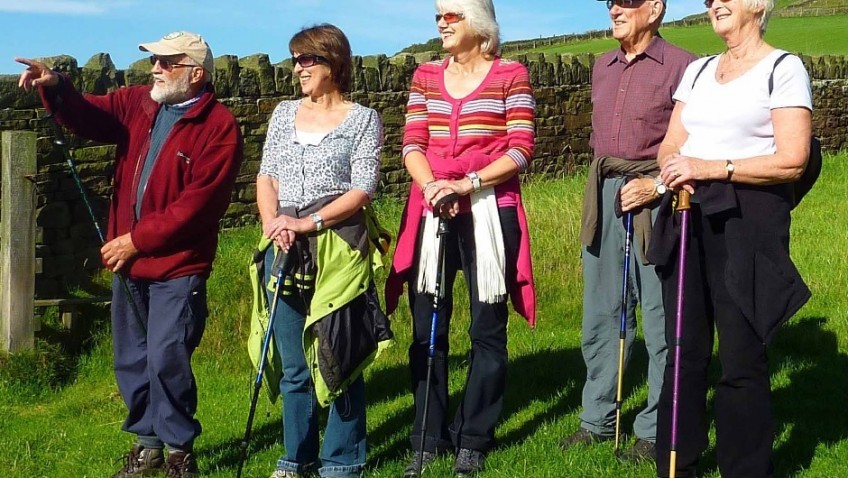It may be a surprise to many to learn that our very own NHS is in the top 5 employers in the world, together with the US Department of Defence, McDonald’s, Walmart and the Chinese People’s Liberation Army. With around 1.7 million people currently working in the NHS across the UK it follows that a large number of today’s retired folk have previously worked in that sector.
The NHS Retirement Fellowship www.nhsrf.org.uk Tel: 0800 9151455 is a flourishing charity which exists to promote wellbeing and joie de vivre amongst its members and spouses who are retired or close to retirement. Its membership is not confined to NHS workers but also includes those who have worked in the care sector.
The Retirement Fellowship offers the opportunity to re-kindle old friendships, make new friends and pursue a raft of activities such as rambling, photography, theatre trips, volunteering, days out, group holidays and much more.
There is also the opportunity not only to participate in activities but to take part in organising them and so those who wish to use their life skills to chair a branch, be a trustee or a branch welfare officer are well catered for. With 180 branches across England, Wales and Scotland there is a branch easily within reach of most potential members. All are welcome. As Audrey Harris, the Fellowship’s Chair says “When you join the Fellowship (some of) the best is yet to come!”
The benefits of joining an organisation like the NHS Retirement Fellowship are many and varied. Access to their Benevolent Fund, in particular, has proved to be a lifeline in time of need for some of the members. The Fund Committee looks sympathetically at all requests that meet the Benevolent Fund criteria and every application will be considered.
Grants may be awarded for different purposes including the purchase of specialist equipment or adaption costs to homes to meet the needs of the applicant. Help has also been made available towards the cost of short stay convalescence after an operation and with the replacement of essential household equipment.
Whilst the Fellowship’s Benevolent Fund assists its members it is worth remembering that there are, in fact, around 3000 benevolent funds/charitable trusts operating in the UK. With such a pool of help out there, it is useful to be aware of what is potentially available in times of need.
Benevolent funds are like the people they help – they come in all shapes and sizes and from a variety of backgrounds. They range from occupational charities to service and ex-service, sickness and disability, national and general and local charities. Funds vary in size and level of funding. They all rely on donations, contributions and, of course, legacies.
An excellent source of information on benevolent funds is Turn2Us – an organisation that exists to help people access the money available to them – through benefits, grants and other financial help. Its website www.turn2us.org.uk helps people find appropriate sources of financial support, quickly and easily, based on their needs and circumstances. As an example, inputting a search for possible grants for a fictitious female of 65 living in postcode HA4 9TY found 25 grant giving bodies from whom help might be available.
Each fund has its own eligibility criteria. In many cases there is eligibility for the member and their dependants for life. For those seeking assistance, the golden rule is that ‘it’s always worth asking’. Benevolent funds welcome approaches from individuals and will always do their best to assist. Even if they cannot help, they may be able to point someone to another source of help. With such a large number of funds, it is likely that an individual is eligible for help from one or more of them, if not in their own right then in that of a close relative.
There is a wide range of assistance available, from general help and advice to financial awards. Traditionally, benevolent funds supplied much-needed cash to individuals in need. There is, however, a trend among the more forward-thinking funds to supply more than this, adopting a preventative and more holistic approach.
You can contact a fund by phone, via their website or in writing. Many have helplines where the caller will be encouraged to speak freely about their worries in a confidential manner. Some funds operate their own care homes for eligible individuals or pay ‘top-up fees’ for those living in care homes. Another much valued benefit is the Befriending Scheme.
In the current economic climate, many people could benefit from the help that benevolent funds can offer. It is, therefore, advisable to keep them in mind for any possible future need of your own, a friend or loved one. Of course, if you have worked in the NHS or the care sector then benevolence is just one good reason for considering membership of the NHS Retirement Fellowship.
Sally Bundock





